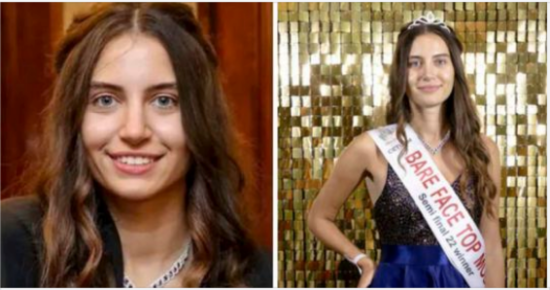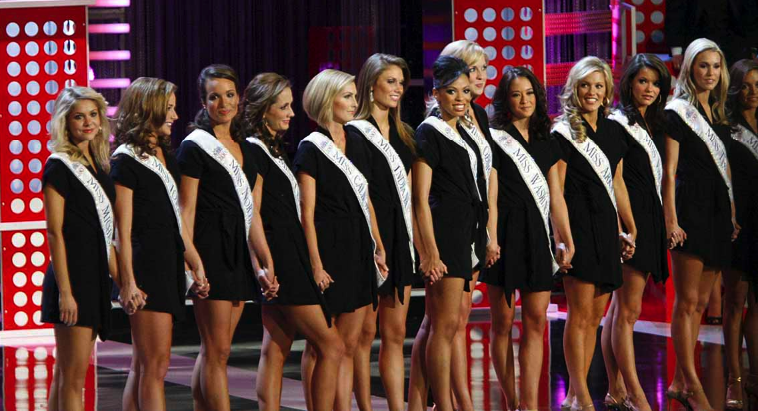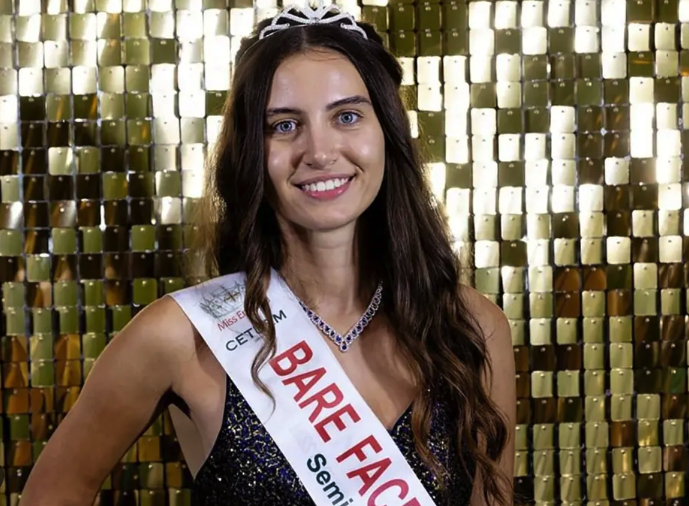Miss England Contestant Becomes First Woman in Pageant’s 94-Year History to Compete Without Makeup

Melisa Raouf, age 20, is one of the 40 finalists vying for the Miss England title.
Raouf, however, was the first competitor to do so in 94 years and the only one in the pageant competing without any makeup.
She aimed to promote inner beauty and challenge the social media-presented beauty norms.

“It means a lot to me as I feel many girls of different ages wear makeup because they feel pressured to do so,” Raouf said.
“If one is happy in their own skin we should not be made to cover up our face with makeup. Our flaws make us who we are and that’s what makes every individual unique. I think people should love and embrace their flaws and blemishes, as we know real beauty lies within simplicity.”

The Miss England Contestant with Bare Face
This year’s Miss England contestant is the first to opt out of the Miss England pageant’s bare-face round. Her choice, according to Raouf, was a “daunting but amazing experience.”
In the finals, she also plans to compete without any makeup. When Raouf was young and lacked confidence in her appearance, she started applying cosmetics.
As she explained, “I never felt I met beauty standards. I have recently accepted that I am beautiful in my own skin and that’s why I decided to compete with no makeup. I still feel confident in myself, with makeup I’m all concealed. This is who I am, I’m not afraid to share who I am. I wanted to show who Melisa truly is.”

Many young women and girls stood behind Raouf throughout the contest because he had given them the confidence to feel better about their own appearances.
“With mental health being such a big topic, I want to make all girls feel good. I just want to remove all the beauty standards. I feel like all girls are beautiful in their own way, I feel like I’ve done it for all girls.” .
Raof promotes Papyrus, a UK organization devoted to preventing teen suicide, and speaks out in favor of children’s mental health during the pageant.

Angie Beasley, who oversees the Miss England pageant, started the bare-faced phase in 2019 after seeing that the majority of contestants submitted photos that had been highly retouched and covered with makeup.
By encouraging women to “show us who they really are without needing to hide behind makeup and filters on social media,” she hoped to achieve her goal. The contestants had to publish a photo of themselves on social media with their faces naked in order to take part.
We wish her the best of luck in Miss England, it’s a very brave thing to do when everyone else is wearing makeup but she’s sending out an important message to young women.” Beasley said about Rauf.

Social media, cosmetics, and body image
Body image is, by definition, a person’s perception of and feelings toward their own physical appearance. Numerous elements, such as beliefs, experiences, and generalizations, may have an impact on this view. People have valued beauty historically, however these standards have evolved over time.
Modern norms are constantly being upheld by social media and popular culture, which has a big impact on how individuals perceive their bodies.
A person who has a negative body image is one who is generally unsatisfied with how they look. They could judge themselves harshly by comparing themselves to others. They can feel the urge to often check their body with a mirror, a scale, or measures.

Additionally, people could feel uneasy and ashamed of their bodies. Sometimes having a poor body image might result in pointless operations, unhealthy weight loss practices, and mental health problems.
Body images can come from messages spread by society, family, friends, and the media. Particularly the fashion and beauty industries encourage undesirable ideas of what is deemed pretty.
A lot of people learn about a perfect appearance as they grow up, however this ideal appearance is actually unnatural and unreachable. Given that users only share their most attractive photos on social media, this has become a problem. As a result, people develop distorted perceptions of what bodies ought to look like.
A tiny study published in 2018 discovered a link between problematic eating and negative body image and the amount of time spent on social media, particularly when users read content from models or fitness professionals that emphasize aesthetics.
Social media, on the other hand, can aid in promoting a positive body image if utilized sensibly.

Disengage for a bit, whether it be a few hours, days, or weeks, if after scrolling one feels terrible about oneself. One’s mood can be substantially improved by taking a rest.
Additionally, unfollow accounts that make you feel inadequate and depressing and replace them with upbeat accounts. Find a group of receptive individuals who are also changing their perspective on beauty ideals.
On Instagram, there are a lot of body-positive accounts that talk about the reality of these standards and offer advice on how to feel more comfortable in one’s own skin. Influencers who advocate for inner beauty include Melisa Raouf, a finalist for Miss England.
When a person has a positive body image, they are at ease with how they look and have a good relationship with their body. It entails having a broad conception of beauty, loving one’s body, and caring for one’s body in pleasing and healthful ways.
Overall, it implies that, despite of outside factors, a person is working toward a better connection with their looks. It’s a common misconception among many people that after they achieve their ideal appearance, they will begin to enjoy their bodies.

No matter how someone appears, they should and can develop a sense of appreciation for their bodies. Please SHARE if you agree.
